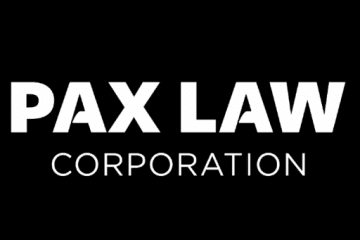Starting a small business can be an exhilarating journey filled with opportunities for innovation and growth. However, the path to success is often fraught with legal challenges that can derail even the most promising enterprises. Understanding and navigating these common legal pitfalls is crucial for small business owners to ensure their ventures not only survive but thrive. This article explores some of the key legal areas that require careful attention, including business structure and liability, employment law compliance, contract management, and intellectual property protection.
Table of contents
Understanding Business Structure and Liability
Choosing the right business structure is a foundational decision that affects everything from daily operations to taxes and personal liability. Common structures include sole proprietorships, partnerships, limited liability companies (LLCs), and corporations. Each structure has its own set of advantages and disadvantages, and the choice should align with the business’s goals, the number of owners, and the level of risk exposure. For instance, while a sole proprietorship is easy to set up and offers complete control to the owner, it also means personal liability for all business debts and obligations.
Limited liability companies (LLCs) and corporations offer personal liability protection, separating personal assets from business liabilities. This structure is particularly appealing for businesses with significant risk exposure or those planning to seek external investment. However, these structures come with increased regulatory requirements and administrative responsibilities. Understanding the nuances of each business structure and consulting with legal and financial advisors can help small business owners make informed decisions that minimize liability risks.

In addition to choosing the right structure, small business owners must also be aware of the potential for legal liabilities arising from their operations. This includes understanding the implications of contracts, employee actions, and product or service liabilities. Regularly reviewing and updating policies, procedures, and insurance coverage can help mitigate these risks. Business owners should also be proactive in identifying potential areas of liability and taking steps to address them before they become major legal issues.
Forming a solid understanding of business structure and liability is crucial for establishing a strong legal foundation for any small business. By taking the time to educate themselves and seek professional advice, entrepreneurs can make strategic decisions that protect their business and personal assets, ensuring long-term success and stability.
Ensuring Compliance with Employment Laws
Employment laws are complex and constantly evolving, making compliance a challenging yet essential task for small business owners. These laws cover a wide range of areas, including minimum wage, overtime pay, workplace safety, and anti-discrimination practices. Failure to comply with employment laws can result in costly lawsuits, fines, and damage to a business’s reputation. To avoid these pitfalls, small business owners must stay informed about federal, state, and local employment regulations and implement policies that adhere to these standards.
One common area of confusion for small businesses is the classification of workers as employees or independent contractors. Misclassification can lead to significant legal and financial consequences, including back taxes and penalties. Business owners should carefully evaluate the nature of the work relationship, considering factors such as control, independence, and the nature of the work performed. Consulting with legal experts can provide clarity and help ensure that workers are classified correctly.
Additionally, small businesses must establish clear, written employment policies and procedures that comply with applicable laws. This includes creating employee handbooks, conducting regular training sessions, and maintaining accurate records of hours worked and wages paid. These measures not only promote compliance but also foster a positive work environment and reduce the risk of disputes.
Proactively managing employment law compliance is an ongoing process that requires vigilance and adaptability. By prioritizing compliance and fostering open communication with employees, small business owners can create a fair and legally sound workplace that supports their business’s growth and success.
Managing Contracts and Agreements Effectively
Contracts and agreements are the backbone of business relationships, providing clarity and security for both parties involved. For small business owners, managing these documents effectively is crucial to avoid misunderstandings and disputes. A well-drafted contract should clearly outline the terms and conditions of the agreement, including payment terms, delivery schedules, and responsibilities of each party. This clarity helps prevent conflicts and ensures that both parties have a mutual understanding of their obligations.
One common pitfall in contract management is the failure to review and update contracts regularly. As business conditions change, contracts may become outdated or no longer reflect the current needs of the parties involved. Regularly reviewing contracts and making necessary amendments can help ensure that they remain relevant and enforceable. Additionally, small business owners should be mindful of renewal terms and notice periods to avoid unintentional breaches or lapses in agreements.
Another important aspect of contract management is the resolution of disputes. Despite best efforts, disagreements may arise, and having a clear dispute resolution process outlined in the contract can save time and resources. This may include mediation, arbitration, or litigation, depending on the nature of the dispute and the preferences of the parties involved. By addressing potential conflicts upfront, small business owners can minimize disruptions and maintain positive business relationships.
Effective contract management requires attention to detail and a proactive approach. By investing time in drafting comprehensive agreements and regularly reviewing them, small business owners can protect their interests and ensure that their business relationships are built on a solid legal foundation.
Protecting Intellectual Property and Trademarks
Intellectual property (IP) is a valuable asset for many small businesses, encompassing creations of the mind such as inventions, designs, logos, and brand names. Protecting these assets is essential to prevent unauthorized use and maintain a competitive edge. Trademarks, copyrights, patents, and trade secrets are the primary forms of intellectual property protection available to small businesses, each serving a specific purpose.
Trademarks protect brand names, logos, and slogans that distinguish a business’s products or services from those of competitors. Registering a trademark provides legal protection and exclusive rights to use the mark in commerce. This not only helps build brand recognition but also prevents others from using similar marks that could confuse consumers. Small business owners should conduct thorough searches to ensure their trademarks are unique and not already in use before filing for registration.
Copyrights protect original works of authorship, such as literary, musical, and artistic creations. For small businesses, this may include marketing materials, website content, and software. While copyright protection is automatic upon creation, registering with the U.S. Copyright Office provides additional legal benefits, including the ability to file a lawsuit for infringement. Ensuring that all creative works are properly protected is vital for safeguarding a business’s intellectual assets.
Patents protect inventions and grant the inventor exclusive rights to use, sell, or license the invention for a certain period. For small businesses engaged in product development, obtaining a patent can provide a significant competitive advantage. However, the patent process can be complex and costly, requiring careful consideration and expert guidance. By securing their intellectual property rights, small business owners can protect their innovations and enhance their market position.
Navigating the legal landscape is a critical aspect of running a successful small business. By understanding and addressing common legal pitfalls related to business structure, employment laws, contracts, and intellectual property, entrepreneurs can protect their ventures from unnecessary risks and liabilities. Proactive legal management not only safeguards a business’s assets but also provides a solid foundation for growth and success. With the right knowledge and resources, small business owners can confidently steer their enterprises toward a promising future.
Important: Please note that the information here is not meant to be legal advice. Do not solely rely on the information given here; it is important that you consult with a lawyer regarding any legal advice. Pax Law Corp. is not responsible for any reliance on the contents of this blog post. Any faces posted on this blog post is totally AI generated and they are not intended to represent any person in the real world. Any similarities are completely coincidental.
1. What is the most important legal decision when starting a small business?
The most important legal decision is choosing the right business structure, as it affects taxes, liability, and overall operations.
2. What are the common business structures for small businesses?
Common structures include sole proprietorships, partnerships, limited liability companies (LLCs), and corporations.
3. How does choosing the wrong business structure affect a small business?
Choosing the wrong structure can lead to tax inefficiencies, personal liability, or missed opportunities for growth or investment.
4. What is the difference between a sole proprietorship and an LLC?
A sole proprietorship offers complete control but exposes personal assets to business liability, whereas an LLC protects personal assets from business liabilities.
5. How can an LLC benefit a small business owner?
An LLC provides liability protection, tax flexibility, and credibility without the complex management structure of a corporation.
6. What is business liability?
Business liability refers to the legal responsibility of a business owner for debts, injuries, or damages resulting from business activities.
7. Why is employment law compliance important for small businesses?
Failure to comply with employment laws can lead to costly lawsuits, fines, and damage to a business’s reputation.
8. What are some key employment laws small business owners should be aware of?
Key laws include minimum wage, overtime pay, workplace safety, and anti-discrimination practices.
9. What is the difference between an employee and an independent contractor?
An employee works under the control and direction of the business, while an independent contractor operates independently and is not subject to the same labor laws.
10. What are the consequences of misclassifying employees as independent contractors?
Misclassification can lead to back taxes, penalties, and legal liabilities.
11. How should small businesses manage employee classification?
Small businesses should assess the nature of the work relationship based on control, independence, and job functions to ensure proper classification.
12. What should be included in an employee handbook?
An employee handbook should outline company policies, workplace expectations, benefits, and legal rights.
13. How can small businesses ensure compliance with workplace safety laws?
Businesses should establish safety protocols, conduct regular training, and ensure adherence to federal and state safety regulations.
14. What is a contract?
A contract is a legally binding agreement between two or more parties outlining their rights, responsibilities, and obligations.
15. Why is it important to manage contracts carefully in a small business?
Effective contract management ensures clear expectations, protects business interests, and helps avoid disputes or misunderstandings.
16. What should a small business include in a contract?
A contract should include terms and conditions such as payment terms, delivery schedules, and the responsibilities of each party.
17. How often should a small business review its contracts?
Contracts should be reviewed regularly to ensure they reflect current business conditions and legal requirements.
18. What is dispute resolution in contract management?
Dispute resolution is the process outlined in a contract for resolving conflicts, such as mediation, arbitration, or litigation.
19. Why is intellectual property protection important for small businesses?
IP protection helps prevent unauthorized use of creations and innovations, safeguarding a business’s competitive edge and market position.
20. What are the main types of intellectual property protection?
The main types are trademarks, copyrights, patents, and trade secrets.
21. What is a trademark?
A trademark is a symbol, word, or other identifier that distinguishes a business’s products or services from others in the market.
22. How does registering a trademark protect a business?
Registering a trademark gives exclusive rights to the business to use that mark in commerce and prevents others from using a similar mark.
23. Can small businesses protect their logos?
Yes, logos can be protected as trademarks, providing legal rights to their exclusive use in business operations.
24. What is copyright protection?
Copyright protects original works of authorship such as books, artwork, music, and software.
25. How does a business protect its website content?
Website content can be protected through copyright registration to prevent unauthorized use or reproduction.
26. What is a patent?
A patent grants exclusive rights to an inventor for a product or process for a certain period, preventing others from making, using, or selling the invention without permission.
27. How does a business obtain a patent?
To obtain a patent, the invention must be novel, useful, and non-obvious, and a formal application must be filed with the patent office.
28. What are trade secrets?
Trade secrets are business practices, processes, formulas, or information that provide a competitive advantage and are kept confidential.
29. Why should small businesses protect their trade secrets?
Protecting trade secrets prevents competitors from gaining access to valuable business information that could erode a competitive advantage.
30. Can small businesses face legal consequences for not protecting their intellectual property?
Yes, failing to protect intellectual property can result in infringement by competitors, loss of market position, and potential legal disputes.
31. What is the difference between a sole proprietorship and a partnership?
A sole proprietorship is owned by one person, while a partnership involves two or more people sharing ownership and responsibilities.
32. How do LLCs protect business owners from personal liability?
LLCs separate personal and business assets, ensuring that business debts and liabilities do not affect the owners’ personal assets.
33. How can small businesses minimize risks related to contracts?
Small businesses can minimize contract risks by ensuring clarity in terms, regularly reviewing agreements, and including dispute resolution clauses.
34. What role does employment law play in employee relations?
Employment law sets the rules for fair treatment of employees, addressing issues like wages, working hours, and protection against discrimination.
35. How can small businesses stay up to date on changing employment laws?
Small businesses should regularly consult legal professionals, attend industry workshops, and subscribe to employment law updates to stay informed.
36. What are the risks of failing to adhere to minimum wage laws?
Failure to comply with minimum wage laws can lead to lawsuits, back wages, penalties, and damage to a business’s reputation.
37. What should be done if an employee files a complaint about workplace discrimination?
The business should investigate the claim, address the issue promptly, and ensure compliance with anti-discrimination laws to avoid legal action.
38. What is the importance of having a clear dispute resolution process in contracts?
It helps resolve disagreements quickly and efficiently, preventing costly and time-consuming legal battles.
39. How do small businesses protect their online content?
Businesses can protect online content through copyright, trademarks, and by implementing terms of use and privacy policies on their websites.
40. Can a business change its legal structure after it is established?
Yes, a business can change its legal structure, but it often requires formal filing, approval, and may have tax implications.
41. What are the challenges of intellectual property protection for small businesses?
Challenges include the cost of registration, the complexity of patent processes, and the risk of infringement by larger companies.



0 Comments